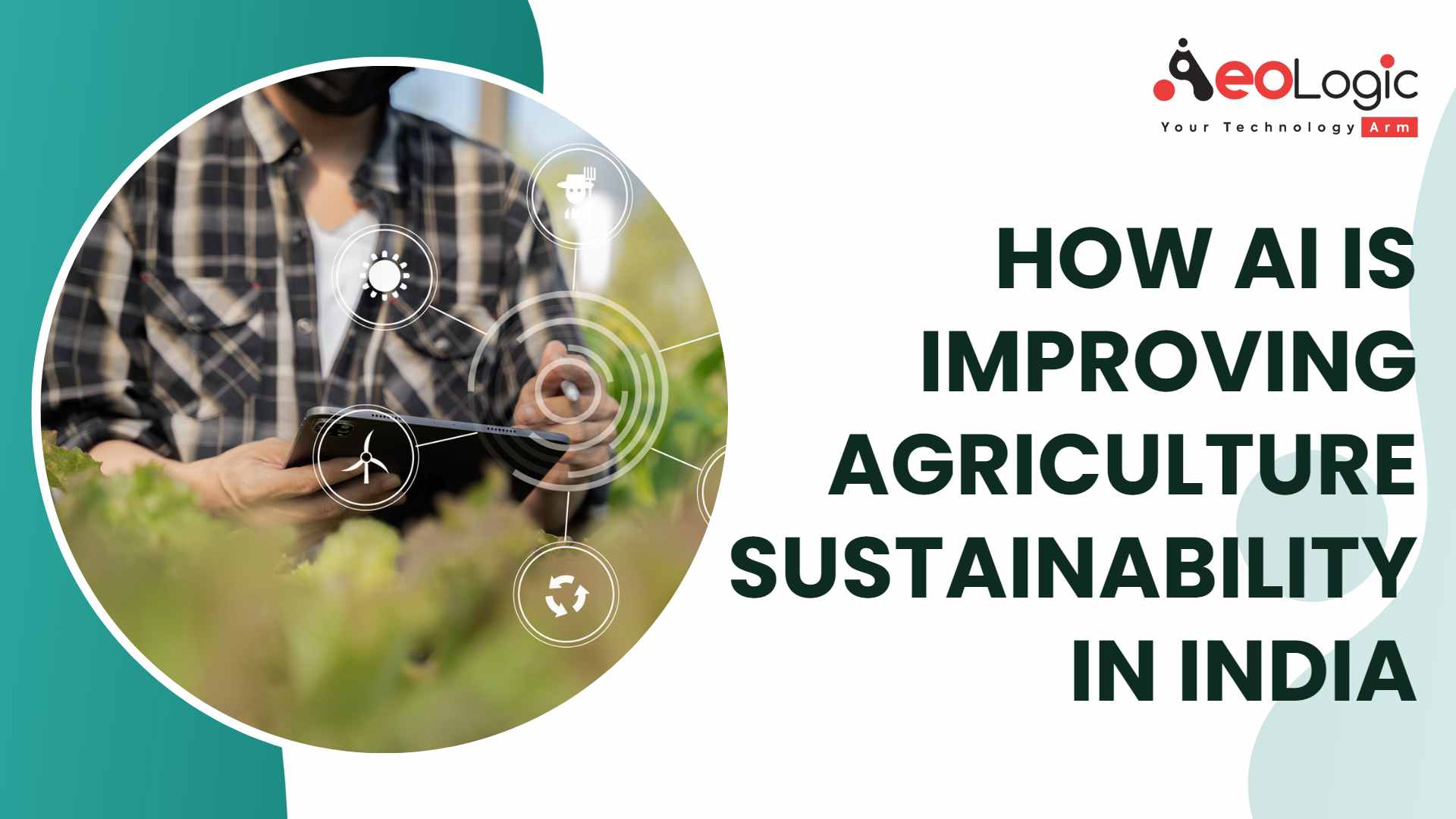Highlights
Artificial intelligence is linking the gap between conventional agricultural practices and productive, efficient, and sustainable farming practices while decreasing the negative economic, environmental, and socio-economic impacts. AI is improving agricultural sustainability.
There is a huge potential and opportunity for AI-assisted agriculture as their application is yet very limited and in the budding stage. A lot has to be explored in terms of the impact verticals of Artificial Intelligence in precision farming and agriculture as an entire system.
Also read: How AI is Transforming the Agriculture Industry
Introduction
With the increasing global population, the focus of the world has come to concerns related to climate change and food security. We all understand that sustainability was a much-ignored term till a few years ago. However, it is now exigent. Governments and agricultural organizations over the world are implementing AI in agriculture. AI is improving agriculture sustainability by intending to tackle issues such as improving efficiency, addressing labor shortages, increasing productivity, and most importantly addressing sustainability issues.
We can broadly categorize the AI intervention aspects in agriculture into areas. Such as Data Collection and Analysis, Surveillance and Image recognition, chatbot assistance to farmers, crop and seed quality selection based on farmers’ requirements, and workload sharing with the help of automation.
Data Collection
AI is paving the way for precision farming which is anticipated to transform the game by assisting farmers in taking informed decisions using data-intensive tools. Moreover, precision farming is based on the notion of AI. Wherein enormous amounts of data are gathered which later is churned into constructive information related to agricultural practices. Indian AgriTech startup Aibono, is offering next dimension farming and food solutions. For example, real-time precision agriculture and real-time synchronization of supply and demand implementing AI.
Surveillance and Image Recognition
AI is improving agriculture sustainability by using Machine learning (ML) and AI together. It is providing insightful information on weather, water, and soil. Furthermore, these are critical factors for harvesting, irrigation, and plantation. These factors actually help in determining crop yield and quality. All while taking care of agriculture sustainability. Intello Labs, an AgriTech startup is implementing AI-enabled image processing. In order to access food quality at the source. Such startups are operating closely with processors, retailers, food growers, and food service companies along with other stakeholders in the food supply chain process.
Workload Sharing
Programming agricultural robots for delivering in areas such as soil content sensing, irrigation, crop monitoring, weeding, and many more. This is enabling farmers to produce faster-to-market crops with minimal effort. With AI-assisted drones crop monitoring, forest fire detection, and surveillance is becoming much easier. Hence, providing relief to farmers. As mentioned by the UN, by 2050, 2/3rd of the world’s population will be residing in urban areas. Therefore, owing to this there is a demand to relieve farmers of the workload. And hence, the necessity for AI-assisted automation to minimize risks and boost productivity.
Data Analysis and Forecasting
A number of software and ML algorithms are providing a correlation and analysis on soil defects, weeds, foliage patterns, and plant pests. Fasal, an Indian AgriTech is using an AI-based microclimate forecasting algorithm. It integrates real in-field data. This relevant data is then correlated to locally available weather forecasts. This facilitates farmers to benefit from real-time, actionable insights making their daily farm operations much more resolved and accurate. The AI-assisted disease detection, custom irrigation schemes, and weather forecasts, along with farmers’ expertise and intuition can transform the situation for the better.
Chatbots
Globally chatbots are offering farmers interactive sessions. In order to impart knowledge about best crop selection, seed choices as per weather conditions, hybrid seed choices, soil types, plant diseases, and maximize the return-on-crops using deep learning. DeHaat, another player in the AgriTech industry is providing 24/7 support to small farmers. That too, on how to grow and where to sell affordably. The company is working majorly with farmers in states of Odisha, Bihar, UP, and Jharkhand.
Moreover, we can also state that AI-based strategies are able to identify market price fluctuations. And thus, providing signals toward better harvesting and planting. Many agriculture technical startups are supporting farmers in these tough COVID-19 phase. Where the supply chain and logistics were disrupted beyond control. According to the Confederation of Indian Industry (CII), only 6% of farmers in India receive the benefits of Minimum Selling Prices (MSP).
Also read: Farmer Centric Solutions for Agriculture Sector in India
Wrapping Up…
Inhibitions are revolving around AI intervention in the agriculture sector and the fact that we are requiring specialized skills. For leveraging AI along with the budding stage that this duo is in. Nonetheless, AI is improving agriculture sustainability in India. However, the scope is limitless considering the situation where agricultural organizations are aligning their long-term objectives. and accordingly acquiring or renting relevant AI services. Agriculture system in our country in the past has been lacking attention and resources. It needed attention which now seems to be changing with the focus of young bright minds and with input from the governments. This appears to be promising in addressing both productivity concerns along with environmental issues.
Contact us now if you need any assistance with your agricultural business!
FAQs
How artificial intelligence is helping agriculture in India?
The farmers in the country are getting assistance in the form of several AI technologies. Which includes soil testing, window prediction, crop health monitoring, sowing quality testing, and tillage estimation. As well as accessing new suppliers and customers in different geographies.
How artificial intelligence is improving agriculture?
Artificial intelligence is enabling better decision-making. Mentioning that AI is also able to gather soil health insights. Therefore, also helps in the monitoring of the weather, providing fertilizer recommendations, and tracking the readiness of produce. All of that is allowing farmers for taking better decisions at each and every level of the crop cultivation process.







